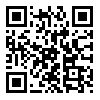Volume 4, Issue 3 (Vol 4, No 3 (13) 2023)
2023, 4(3): 87-100 |
Back to browse issues page
Download citation:
BibTeX | RIS | EndNote | Medlars | ProCite | Reference Manager | RefWorks
Send citation to:



BibTeX | RIS | EndNote | Medlars | ProCite | Reference Manager | RefWorks
Send citation to:
Mirhosseini M, Dortaj F, Barzegar M, Yosefi E. (2023). The effectiveness of "web-based Narrative therapy" on executive functions and social interactions of children with ADHD. Journal of Childhood Health and Education. 4(3), : 7 doi:10.32592/jeche.4.3.101
URL: http://jeche.ir/article-1-165-en.html
URL: http://jeche.ir/article-1-165-en.html
1- Ph.D. Student, Department of Psychology and Educational Science, Qeshm Branch, Islamic Azad University, Qeshm, Iran.
2- Professor, Educational Psychology Dept., Allameh Tabataba'i University, Tehran, Iran
3- Assistant Professor, Department of Psychology, Marvdasht branch, Islamic Azad University, Marvdasht, Iran.
4- Assistant Professor, Department of Psychology and Educational Science, Qeshm Branch, Islamic Azad University, Qeshm, Iran.
2- Professor, Educational Psychology Dept., Allameh Tabataba'i University, Tehran, Iran
3- Assistant Professor, Department of Psychology, Marvdasht branch, Islamic Azad University, Marvdasht, Iran.
4- Assistant Professor, Department of Psychology and Educational Science, Qeshm Branch, Islamic Azad University, Qeshm, Iran.
Abstract: (2736 Views)
Abstract
Introduction: Attention Deficit/Hyperactivity Disorder (ADHD) is one of the most common childhood disorders, requiring consistent adherence to treatment for successful outcomes. The present study aimed to determine the effectiveness of the " web-based Narrative therapy " package on the executive functions and social interactions of children with ADHD. Method: Using a quasi-experimental design, 30 children (18 boys, 12 girls) aged 9 to 11 with ADHD were selected from educational counselling centers in Shiraz during the academic year 1400-1401. They were assigned to experimental and control groups after matching. While both groups received pharmacological treatment, the experimental group underwent a 12-session " web-based Narrative therapy " training over a period of one month and two weeks, while the control group did not receive this training. Data were collected using the use of Connors (2004), Brief Children's Symptoms (2000), and Mattson's Social Skills (1983) questionnaires to assess the variables of attention, organization/planning, and social interactions, respectively. Descriptive statistics including means, standard deviations, minimum and maximum values were calculated, followed by the use of covariance analysis (ANCOVA) to test the research hypotheses. The paired comparison between groups was conducted using the Levene and Bonferroni follow-up tests. The data were analyzed using SPSS version 22. Results: The results indicated that the "web-based Narrative therapy" training was effective in improving organization/planning and social interactions. However, there was no significant difference in attention score between the experimental and control groups. Conclusion: The utilization of new technologies such as "web-based Narrative therapy" demonstrates a promising strategy for rehabilitating children with ADHD. The outcomes of e-health interventions suggest that it is a potentially cost-effective and accessible intervention for children with ADHD.
Introduction: Attention Deficit/Hyperactivity Disorder (ADHD) is one of the most common childhood disorders, requiring consistent adherence to treatment for successful outcomes. The present study aimed to determine the effectiveness of the " web-based Narrative therapy " package on the executive functions and social interactions of children with ADHD. Method: Using a quasi-experimental design, 30 children (18 boys, 12 girls) aged 9 to 11 with ADHD were selected from educational counselling centers in Shiraz during the academic year 1400-1401. They were assigned to experimental and control groups after matching. While both groups received pharmacological treatment, the experimental group underwent a 12-session " web-based Narrative therapy " training over a period of one month and two weeks, while the control group did not receive this training. Data were collected using the use of Connors (2004), Brief Children's Symptoms (2000), and Mattson's Social Skills (1983) questionnaires to assess the variables of attention, organization/planning, and social interactions, respectively. Descriptive statistics including means, standard deviations, minimum and maximum values were calculated, followed by the use of covariance analysis (ANCOVA) to test the research hypotheses. The paired comparison between groups was conducted using the Levene and Bonferroni follow-up tests. The data were analyzed using SPSS version 22. Results: The results indicated that the "web-based Narrative therapy" training was effective in improving organization/planning and social interactions. However, there was no significant difference in attention score between the experimental and control groups. Conclusion: The utilization of new technologies such as "web-based Narrative therapy" demonstrates a promising strategy for rehabilitating children with ADHD. The outcomes of e-health interventions suggest that it is a potentially cost-effective and accessible intervention for children with ADHD.
Article number: 7
Keywords: Narrative therapy, students with attention deficit/hyperactivity disorder (ADHD), attention, Organization/Planning, social interactions.
Type of Study: Research |
Subject:
Special
Received: 2023/07/14 | Accepted: 2023/09/26 | Published: 2023/10/3
Received: 2023/07/14 | Accepted: 2023/09/26 | Published: 2023/10/3
Send email to the article author
| Rights and permissions | |
 |
This work is licensed under a Creative Commons Attribution-NonCommercial 4.0 International License. |



